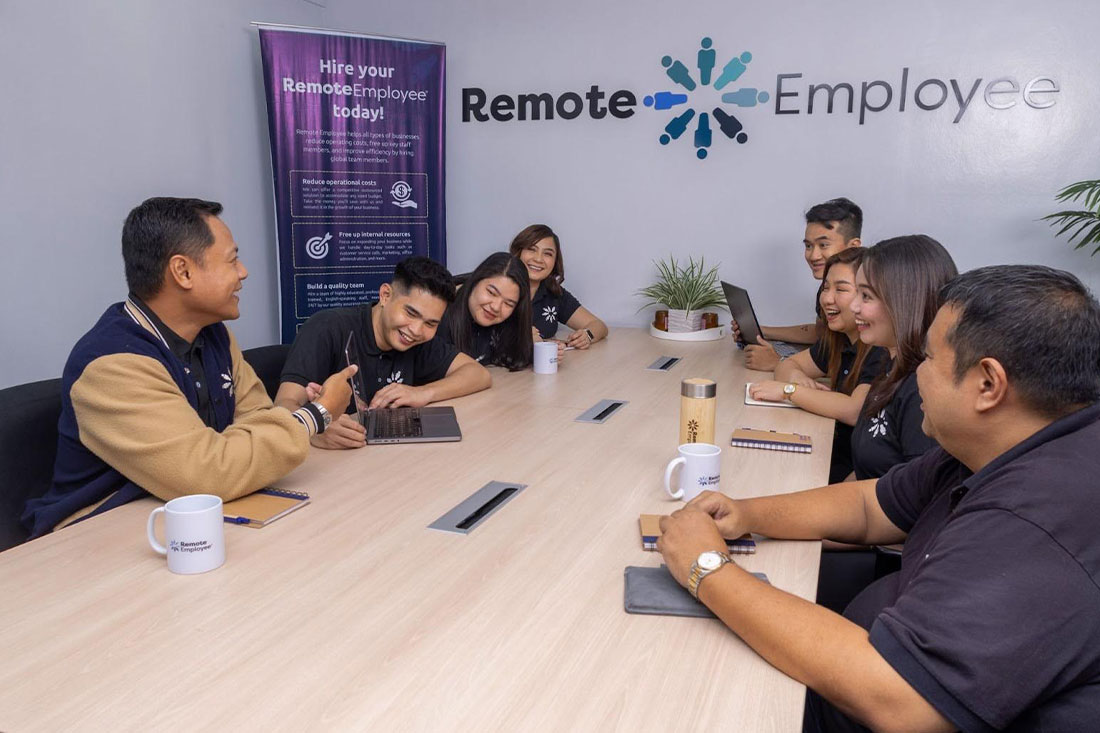There are few things more satisfying for businesses than hearing their clients say they want to stay longer. For outsourcing company Remote Employee, this isn’t just a dream, but a reality. According to the company, they’ve achieved what many considered impossible: a 97% client retention rate.
This milestone, the company asserts, has become both a competitive advantage and an industry benchmark. It also reflects satisfied customers and the company’s foundation of stable, engaged workers delivering consistent quality.
Retention as a success determinant
High customer retention extends beyond a simple metric; it is a fundamental indicator of a company’s health and sustainability in the marketplace. When companies achieve exceptional retention rates, it can signal that they have established meaningful relationships with customers that can potentially withstand market fluctuations and competitive pressures. This stability translates to financial performance through reduced acquisition costs, consistent revenue streams and increased lifetime customer value.
Remote Employee’s 97% customer retention rate exemplifies this principle in action, showing how retention directly correlates with organizational effectiveness. Founded in 2020 during the pandemic-driven shift to remote work, the company strives to address costly turnover. It does so not with revolutionary technology, but through a human-centered outsourcing outlook.
“Having the right people positioned in the right roles and retaining them for as long as possible is the key to overseeing a successful and smooth-running company,” explains Remote Employee CEO Ruffy Galang. This philosophy, Galang shares, demonstrates how customer retention stems from operational continuity, when staff remain engaged and stable, client relationships flourish and service quality remains consistent.
The dual retention formula
Remote Employee’s high customer retention rate operates on two interconnected planes: finding the right people for the task and maintaining a stable workforce serving clients. “Our edge is our people and our culture,” Galang states. “We want to create a family-oriented space for employees to bring great results to clients.”
Trusted hiring process as the foundation
This people-first philosophy that keeps Remote Employee’s customers staying begins with selecting the right employees. Galang maintains that rather than prioritizing the speed of placement, Remote Employee implements a multi-layered vetting process—one in which only 12% of applicants ultimately make it through.
The company actively screens for technical skills and for traits like adaptability, resilience and emotional intelligence, which correlate strongly with excellent performance.
The company reports that once hired, employees enter a comprehensive onboarding process designed. It’s one that is designed not only to train, but also to integrate employees into a corporate culture that emphasizes belonging. This includes mentorship programming, regular feedback loops and clearly defined career advancement pathways.
Galang explains, “We invest a lot of time and money into picking and assigning the right employees, as they are the face of our company. Clients work with them directly, so we want to make sure our team gives a good impression. This allows us to provide top-tier service that businesses keep returning to and staying for.”
Finding the perfect fit
Remote Employee also emphasizes matching the right talent to specific outsourcing needs. Part of its rigorous selection process is to identify candidates who possess the technical skills required for specialized roles like bookkeeping, data entry services and customer service. Those candidates must also demonstrate the temperament and communication abilities essential for remote collaboration.
According to Galang, rather than using a one-size-fits-all method, Remote Employee carefully evaluates each candidate’s aptitude for particular outsourcing functions. This guarantees that the company places detail-oriented individuals in accounting and data management positions.
Meanwhile, the company directs those with strong interpersonal skills toward customer support and virtual assistance roles. This targeted matching creates natural job satisfaction, as employees excel in areas that align with their inherent strengths and interests.
Galang mentions, “When employees are happy, they are more likely to do their jobs well, which makes our clients happy, too.”
The cultural component
Remote Employee also believes that cultural factors play an outsized role in their retention rates and are tied to the company’s deliberate use of Filipino workforce strengths.
The Philippines has long served as a global outsourcing hub, with its large English-speaking population and strong service orientation. However, Remote Employee has refined its technique to specifically capitalize on what they believe are cultural attributes that make Filipino professionals valuable in remote work environments.
One such attribute is natural adaptability, as Filipino workers often transition smoothly between diverse work cultures. Another is a strong work ethic and dedication, since many see their roles as extensions of family responsibility. Finally, there is resilience. A national history of overcoming challenges fostered these qualities.
Remote Employee’s bicultural leadership model reinforces this cultural dimension. Galang’s leadership provides a global business perspective and local Filipino management, creating an environment that feels both internationally competitive and locally nurturing.
The business value proposition
For clients, Remote Employee’s customer retention excellence translates into measurable business value. According to the company, client-reported satisfaction scores show a direct correlation between team stability and work quality. Beyond productivity, financial benefits accumulate as well. Clients save up to 70% on labor costs compared to maintaining equivalent in-house teams, while avoiding the additional expenses associated with frequent rehiring and retraining.
The business value extends to competitive agility. In the outsourcing industry, being able to scale quickly is critical. Having loyal customers and a stable team establishes Remote Employee’s name in the outsourcing industry, giving it an edge.





